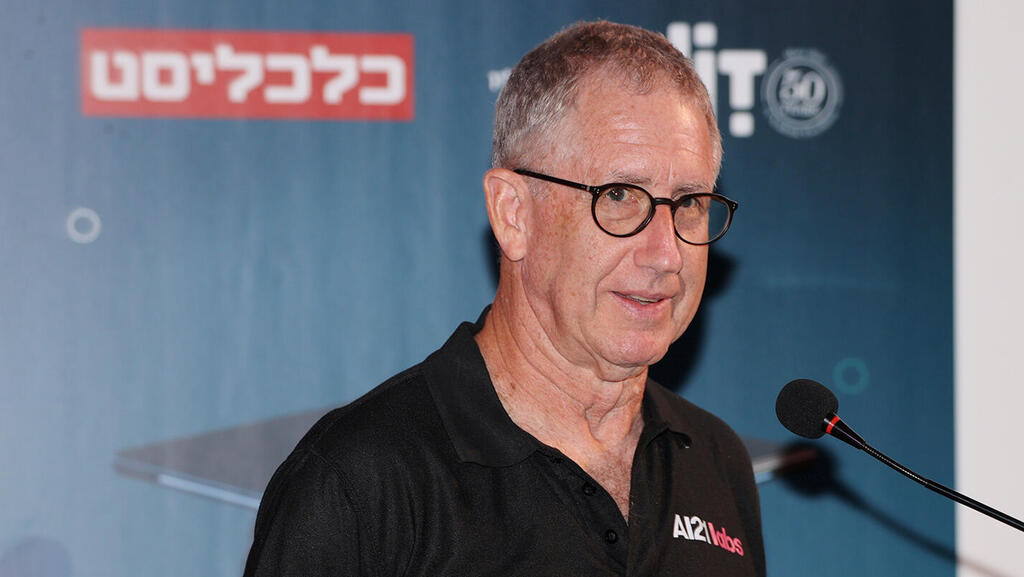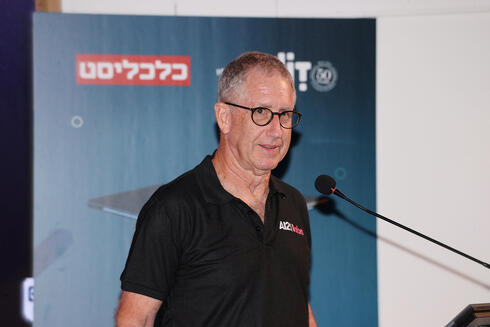
“AI will become another employee”: AI21 CEO Yoav Shoham on the rise of hybrid organizations
The AI21 Labs co-founder envisions a future where digital and human employees work side by side.
“I was a professor in the U.S. for many years. I returned to Israel, where we founded AI21 Labs, a company that has now been operating for seven years,” began Yoav Shoham, co-founder and co-CEO of AI21 Labs and head of the Scientific Committee of Israel’s National Program for Artificial Intelligence. Shoham spoke at the Future of Industry in Israel conference organized by Calcalist and the Holon Institute of Technology (HIT).
“At the time, we introduced our own writing assistant, but technology is advancing at a tremendous pace,” he said. “We now have a new family of models that are incredibly efficient, because our business focus is on the enterprise sector.”
Shoham continued: “I’d like to talk about how I view organizations that work with artificial intelligence. After all, it’s difficult to predict the future. At the begYinning of the 20th century, people imagined that everyone would have a personal hot air balloon to travel from place to place, that was their vision of progress. Today, the potential ahead of us is no less surprising.
“The AI most of us are familiar with is already highly involved and interactive. When you buy a product in a store, for example, you say thank you and leave, it’s a quick, transactional interaction. But we are now moving toward a world of what are called AI agents. These systems can manage complex processes, leading transactions and acting as active participants. AI will become another employee within the organization. That’s the key message: we are heading toward a hybrid organization, one that combines human employees with digital ones.”
To some, this vision of AI implementation might sound like science fiction, Shoham said, “but it’s not far off. Take Zoom, for example, you can already talk to it using its built-in assistant, which not only facilitates communication but also generates transcripts. We no longer think of these tools as passive; they are assistants and collaborators. This is the direction we’re heading.
Related articles:
“The vision is, of course, extremely exciting. I believe AI offers a real opportunity to jumpstart human productivity, for people and organizations alike, and to help us focus on what’s creative and uniquely human.”
Does that mean we are all about to become AI-driven? “Not so fast,” Shoham cautioned. “Despite all these advancements, mass adoption won’t happen overnight because there are still major obstacles. Until about four or six years ago, it was nearly impossible to interest enterprises in AI adoption. Today, it’s the opposite, every organization is focused on AI. But even so, there’s still a large gap between running projects and achieving actual deployment.
“An MIT study published two months ago found that 95% of AI projects fail. What we’re seeing now is the emergence of a ‘responsible adult’, meaning more organizations are starting to ask whether a project is truly likely to succeed.”
Why do so many projects still fail? Shoham attributes it to both technological and organizational challenges. “There’s a reliability problem. Language models are amazing, until they’re not. When they fail, the consequences can be significant. If you’re a student who makes mistakes 5% of the time, that’s acceptable. But if you’re a doctor, it’s catastrophic. The issue becomes even more serious in multi-step processes, and that’s something we technologists must solve.
“Beyond that, there are organizational challenges. Everyone talks about product-market fit, but the role of the product manager is equally critical, to take existing technology, understand market needs, and connect the two. It’s a demanding role, and it’s even harder today because technology is evolving so rapidly.
“The challenge for companies developing AI-based applications is to compensate for the technology’s current shortcomings. And for management, the challenge is to adapt to constant change, like Netflix, which began as a DVD mailing company and transformed into a global content producer. The key is knowing when and how to change.”
